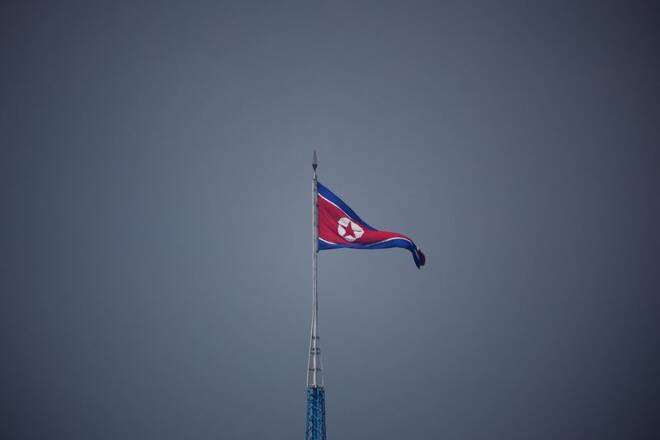Advertisement
Advertisement
S.Korea official: no soft response in case of N.Korea nuclear test
By:
SEOUL (Reuters) - South Korea's national security advisor has said he and his counterparts from the United States and Japan have agreed there will be no soft response if North Korea conducts a nuclear test, Yonhap news agency reported on Friday.
By Soo-hyang Choi
SEOUL (Reuters) -South Korea’s national security adviser has said he and his counterparts from the United States and Japan have agreed there will be no soft response if North Korea conducts a nuclear test, Yonhap news agency reported on Friday.
Kim Sung-han made the comment after trilateral talks with U.S. National Security Advisor Jake Sullivan and Akiba Takeo of Japan in Hawaii amid signs the North has completed preparations to conduct its first nuclear test since 2017.
“If North Korea conducts its seventh nuclear test, our three countries, together with the international community, will maximise cooperation in a way that (North Korea) realises it was a clearly wrong choice,” Kim told reporters, according to Yonhap.
“We have agreed there should never be such a complacent thinking or response that North Korea has conducted just another nuclear test in addition to the six tests it did.”
The isolated, nuclear-armed North has conducted missile tests at an unprecedented pace this year.
In mid-August, North Korea fired two cruise missiles from its west coast after South Korea and the United States resumed the largest field exercises in years.
Pyongyang has long denounced the exercises as a rehearsal for war.
South Korea’s foreign minister has said Pyongyang will likely face stronger sanctions aimed at curbing its cyberattack capabilities, a key funding source, if it pushes ahead with another nuclear test.
During the latest talks, the three officials also agreed to cooperate on global supply chain issues, while Kim separately raised concerns over new U.S. rules on subsidies for electric vehicles, South Korea’s presidential office said.
Kim said after a bilateral meeting with Sullivan the previous day that the United States has promised to review the impact of the new rules after Seoul raised concern they could hurt South Korean automakers.
Measures under the Inflation Reduction Act (IRA), signed into law by U.S. President Joe Biden last month, would include halting subsidies for EVs made outside North America, which could affect companies like Hyundai Motor Co and its affiliate Kia Corp.
This week’s meeting marked the three officials’ first gathering since South Korean President Yoon Suk-yeol took office in May.
(Reporting by Soo-hyang Choi; Additional reporting by Hyonhee Shin; Editing by Richard Pullin and Raju Gopalakrishnan)
About the Author
Reuterscontributor
Reuters, the news and media division of Thomson Reuters, is the world’s largest international multimedia news provider reaching more than one billion people every day. Reuters provides trusted business, financial, national, and international news to professionals via Thomson Reuters desktops, the world's media organizations, and directly to consumers at Reuters.com and via Reuters TV. Learn more about Thomson Reuters products:
Latest news and analysis
Advertisement
